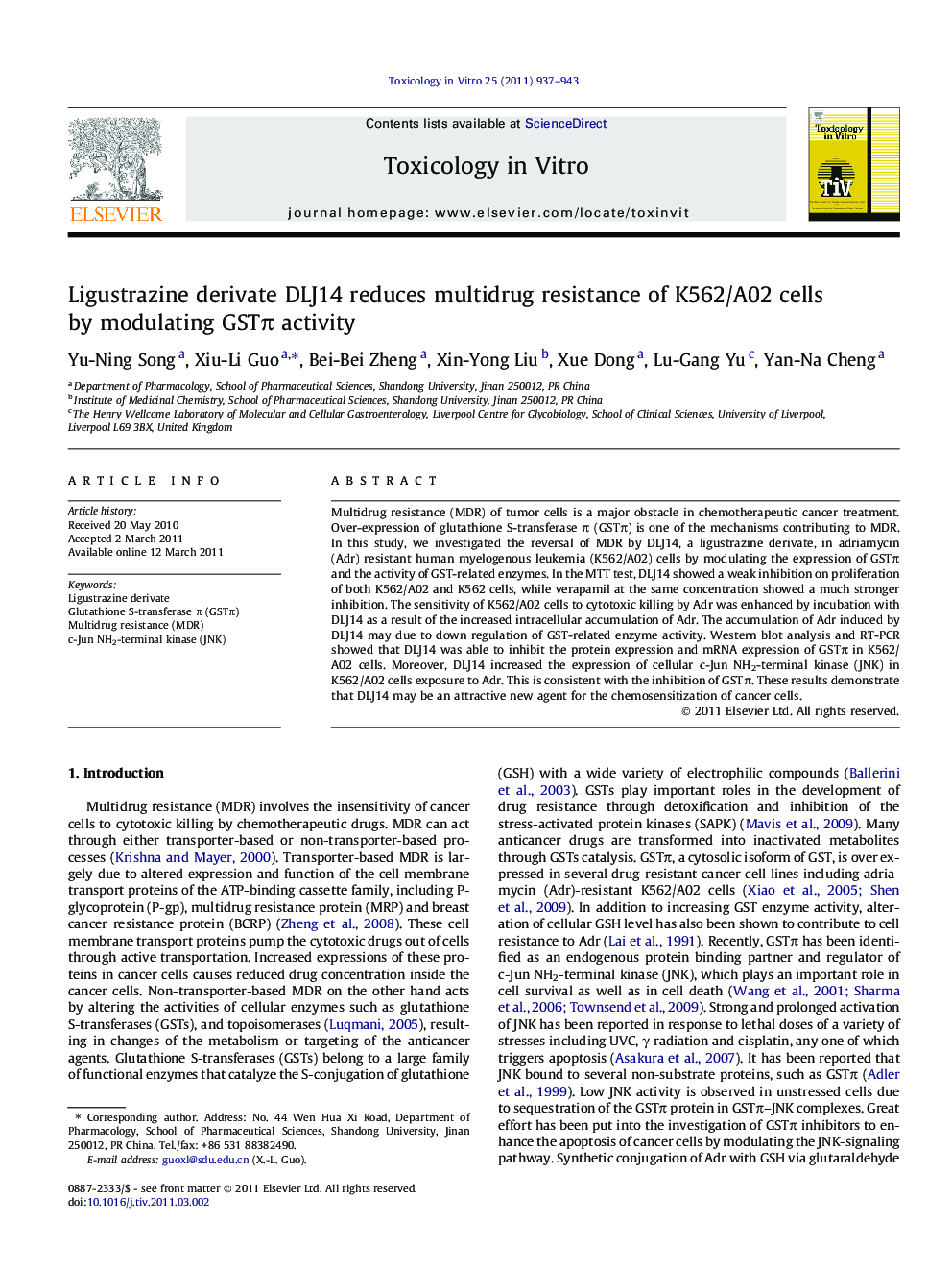| Article ID | Journal | Published Year | Pages | File Type |
|---|---|---|---|---|
| 2602831 | Toxicology in Vitro | 2011 | 7 Pages |
Multidrug resistance (MDR) of tumor cells is a major obstacle in chemotherapeutic cancer treatment. Over-expression of glutathione S-transferase π (GSTπ) is one of the mechanisms contributing to MDR. In this study, we investigated the reversal of MDR by DLJ14, a ligustrazine derivate, in adriamycin (Adr) resistant human myelogenous leukemia (K562/A02) cells by modulating the expression of GSTπ and the activity of GST-related enzymes. In the MTT test, DLJ14 showed a weak inhibition on proliferation of both K562/A02 and K562 cells, while verapamil at the same concentration showed a much stronger inhibition. The sensitivity of K562/A02 cells to cytotoxic killing by Adr was enhanced by incubation with DLJ14 as a result of the increased intracellular accumulation of Adr. The accumulation of Adr induced by DLJ14 may due to down regulation of GST-related enzyme activity. Western blot analysis and RT-PCR showed that DLJ14 was able to inhibit the protein expression and mRNA expression of GSTπ in K562/A02 cells. Moreover, DLJ14 increased the expression of cellular c-Jun NH2-terminal kinase (JNK) in K562/A02 cells exposure to Adr. This is consistent with the inhibition of GSTπ. These results demonstrate that DLJ14 may be an attractive new agent for the chemosensitization of cancer cells.
